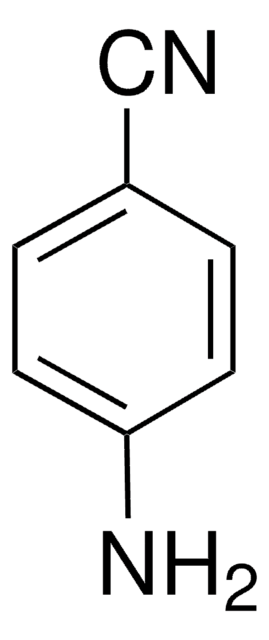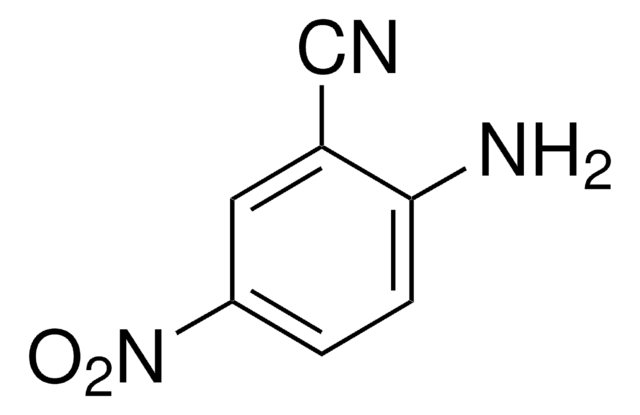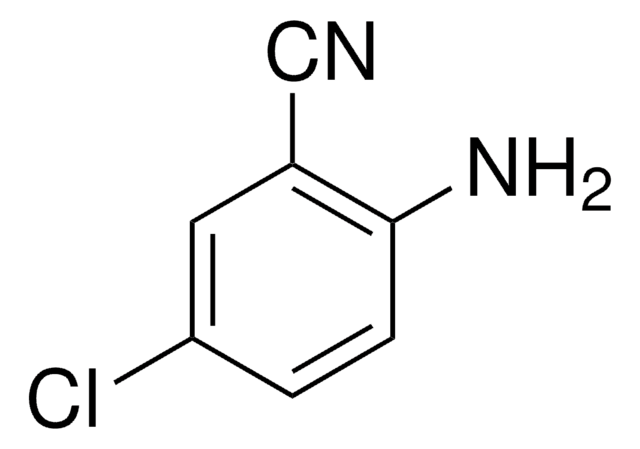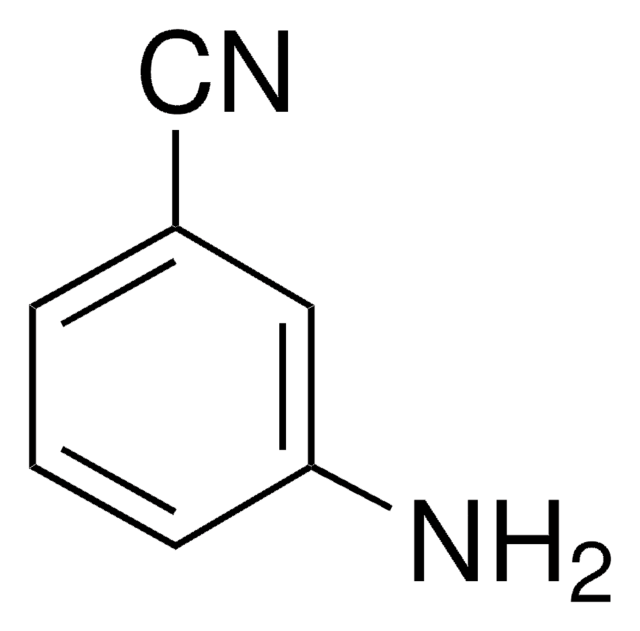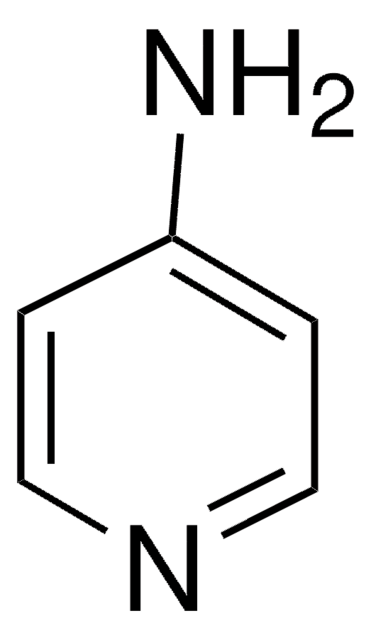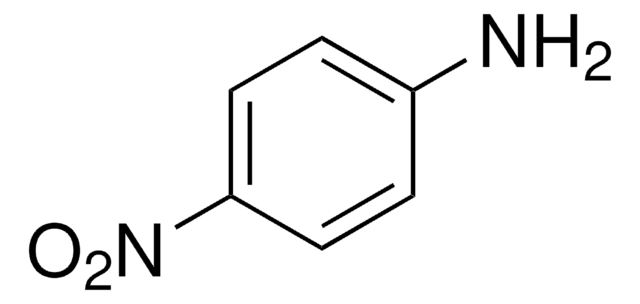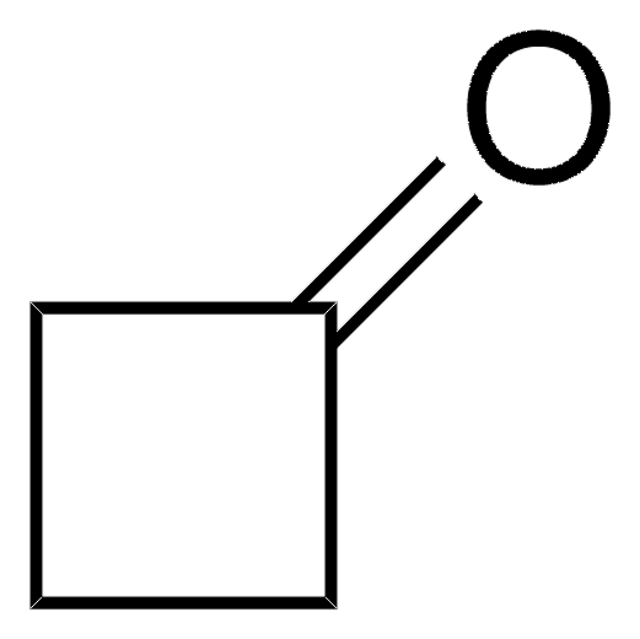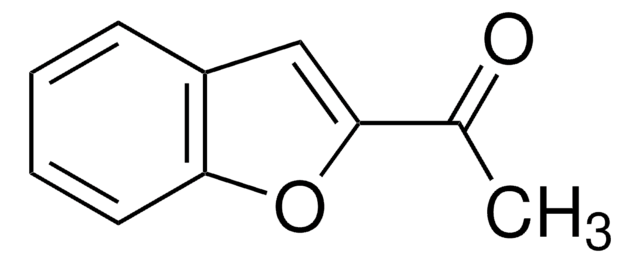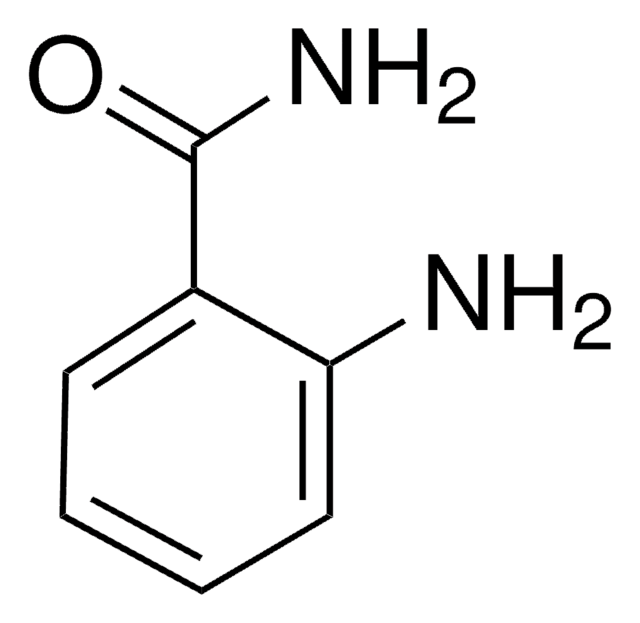A89901
2-Aminobenzonitrile
98%
Synonym(s):
2-Cyanoaniline, Anthranilonitrile
About This Item
Recommended Products
Assay
98%
form
crystals
bp
267-268 °C (lit.)
mp
45-48 °C (lit.)
SMILES string
Nc1ccccc1C#N
InChI
1S/C7H6N2/c8-5-6-3-1-2-4-7(6)9/h1-4H,9H2
InChI key
HLCPWBZNUKCSBN-UHFFFAOYSA-N
Looking for similar products? Visit Product Comparison Guide
Signal Word
Warning
Hazard Statements
Precautionary Statements
Hazard Classifications
Acute Tox. 4 Dermal - Acute Tox. 4 Inhalation - Acute Tox. 4 Oral - Eye Irrit. 2 - Skin Irrit. 2 - Skin Sens. 1 - STOT SE 3
Target Organs
Respiratory system
Storage Class Code
13 - Non Combustible Solids
WGK
WGK 2
Flash Point(F)
293.0 °F - closed cup
Flash Point(C)
145 °C - closed cup
Personal Protective Equipment
Choose from one of the most recent versions:
Already Own This Product?
Find documentation for the products that you have recently purchased in the Document Library.
Customers Also Viewed
Our team of scientists has experience in all areas of research including Life Science, Material Science, Chemical Synthesis, Chromatography, Analytical and many others.
Contact Technical Service